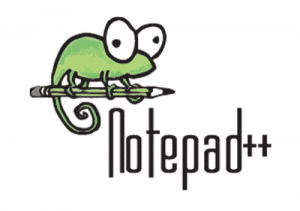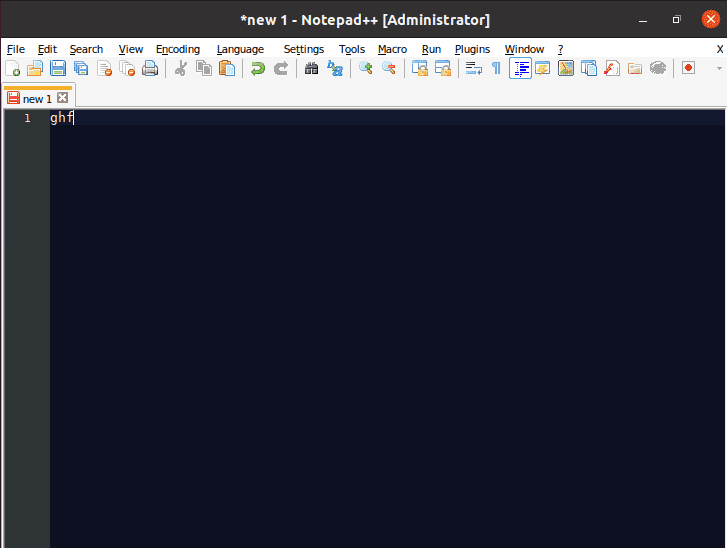How To Install Notepad++ on Fedora 41

Notepad++ is a widely-used text editor among developers, known for its versatility and extensive features. Although primarily designed for Windows, Linux users can also benefit from its functionalities through various installation methods. This guide will walk you through the steps to install Notepad++ on Fedora 41, utilizing both Snap and Wine. By the end of this article, you will have a fully functional Notepad++ installation on your Fedora system.
Understanding Notepad++
What is Notepad++?
Notepad++ is a free, open-source text editor that supports multiple programming languages. Its features include syntax highlighting, code folding, and a robust plugin ecosystem that enhances its functionality. Developers appreciate Notepad++ for its lightweight design and ease of use, making it an ideal choice for coding, scripting, and text editing.
Why Use Notepad++ on Linux?
While Notepad++ is primarily a Windows application, many Linux users prefer it due to its powerful features and user-friendly interface. With tools like Wine and Snap, running Notepad++ on Linux has become straightforward. These tools allow users to enjoy the benefits of Notepad++ without needing to switch operating systems.
Prerequisites for Installation
System Requirements
Before installing Notepad++, ensure your Fedora 41 system meets the following requirements:
- A compatible 64-bit version of Fedora 41.
- At least 1 GB of RAM (2 GB recommended).
- Sufficient disk space (minimum 200 MB).
User Privileges
You need sudo privileges to install software on your system. Ensure you have administrative access before proceeding with the installation.
Method 1: Installing Notepad++ Using Snap
Step 1: Install Snapd
Snap is a package management system that simplifies software installation on Linux. To install Snapd on Fedora 41, follow these steps:
-
- Open your terminal.
- Run the following command to install Snapd:
sudo dnf install snapd-
- Create a symbolic link to enable Snap support:
sudo ln -s /var/lib/snapd/snap /snap-
- Reboot your system to apply the changes:
sudo rebootStep 2: Install Notepad++ via Snap
Once Snapd is installed and your system has rebooted, you can proceed to install Notepad++. Execute the following command in your terminal:
sudo snap install notepad-plus-plusThe installation process may take a few moments as Snap downloads and sets up Notepad++. Once completed, you will see a confirmation message in the terminal.
Step 3: Launching Notepad++
You can launch Notepad++ in two ways:
-
- From the application menu: Search for “Notepad++” in your applications list.
- Using the terminal: Type the following command and press Enter:
notepad-plus-plusStep 4: Updating and Uninstalling Notepad++
Snap automatically manages updates for installed applications. However, if you need to uninstall Notepad++, use this command:
sudo snap remove notepad-plus-plusMethod 2: Installing Notepad++ Using Wine
Step 1: Install Wine
Wine allows Linux users to run Windows applications seamlessly. To install Wine on Fedora 41, follow these steps:
-
- Open your terminal.
- Add the Wine repository:
wget -nc https://dl.winehq.org/wine-builds/winehq.key
sudo rpm --import winehq.key
sudo dnf config-manager --add-repo https://dl.winehq.org/wine-builds/fedora/41/winehq.repo-
- Install Wine using the following command:
sudo dnf install winehq-stableStep 2: Downloading the Notepad++ Installer
You need the Windows installer for Notepad++. Download it from the official website or GitHub repository. Use a web browser or run this command in your terminal:
wget https://github.com/notepad-plus-plus/notepad-plus-plus/releases/latest/download/npp.x.y.Installer.exeStep 3: Setting Up Wine Environment
A proper Wine environment enhances compatibility with Windows applications. Configure Wine by executing these commands:
export WINEARCH=win32
export WINEPREFIX=~/.wine-notepad
winecfgThis will create a new Wine prefix specifically for Notepad++. The `winecfg` command opens a configuration window where you can set up options like Windows version compatibility.
Step 4: Running the Installer
Now that you have set up Wine, run the Notepad++ installer using this command:
wine path/to/npp.x.y.Installer.exeThis will launch the installer as if you were running it on Windows. Follow the prompts to complete the installation process.
Step 5: Launching Notepad++ Installed via Wine
You can start Notepad++ by navigating to its installation directory or by using this command:
wine ~/.wine-notepad/drive_c/Program\ Files/Notepad++/notepad++.exe
Troubleshooting Common Issues
If you encounter issues during installation or while running Notepad++, consider these troubleshooting tips:
- Error messages during installation: Ensure that all commands are entered correctly and that you have an active internet connection.
- No sound or visual glitches in Wine: Adjust graphics settings in `
winecfg` under the “Graphics” tab. - If Snap fails to install applications: Verify that Snapd is properly installed and running by executing `
systemctl status snapd.service` in your terminal. - If launching fails with Wine: Check if dependencies are missing by running `
wine --version` to ensure proper installation. - If performance is slow: Consider increasing system resources or checking for updates for both Wine and Fedora.
Congratulations! You have successfully installed Notepad++. Thanks for using this tutorial for installing the Notepad++ free text editor on Fedora 41 system. For additional help or useful information, we recommend you check the official Notepad++ website.